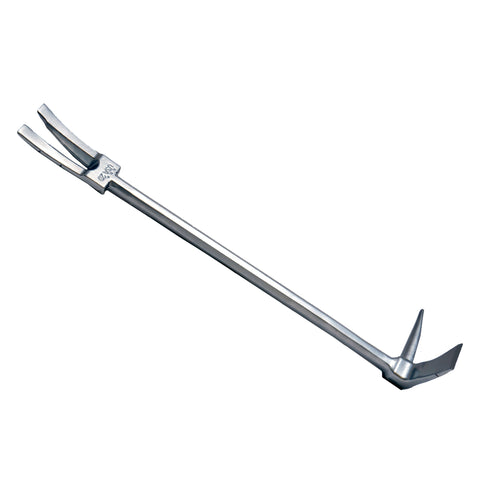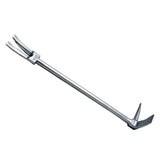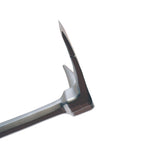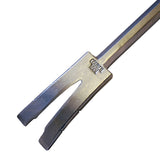This TD30 Halligan is the New and improved tool for our first responders. Are you looking for a Halligan that out of the box comes tuned and dressed? Saving you and your crew hours of time? This is the tool you've been asking for.
Marries with Our FE6 6lb Flathead.
4140 Steel
30" OAL
"Tuned and Dressed" out of the box
Powder-coated Finish
Details from Council:
"Council Tool TD30 Tuned & Dressed 30” Halligan
Proudly made in the USA!!
The new Council Tool TD30 Halligan is meant to be an improvement over our previous Halligan design, and is a quality tool that competes with the other industry leading Halligans.
The TD30 is drop-forged from a single piece of 4140, American sourced, high carbon tool steel, and is approximately 30” in overall length. This special alloy steel Halligan is lighter and stronger than investment cast bars, and there are no welds, pins, fasteners, or cast parts. The idea behind a “Tuned & Dressed” Halligan, comes from the fact that most firefighters are encouraged and often required, to maintain their own tools, and the tools of their fire department.
When a new Halligan is purchased, even the most popular models are adjusted to the preference of the firefighters, so that the tool can perform effectively and efficiently.
The firefighters will often thin out the forks, create a convex edge on the fork ends and adze edge, creating a smooth transition from the bevels to the blade, which replaces the chisel grind found on many Halligans.
Most of those “adjustments”, are now part of our new design and built into the forging dies. This means that we are forging a specialized Halligan that will be finished, and pre-“tuned and dresses”.
Another part of the “dressing” process is to add impression/ground reference lines on the outer sides/edges of the forks and adze blade. These reference lines allow the firefighter to know how far the tip of the fork tines, or the leading edge of the adze blade, has been driven into a door gap with an axe or sledge. The firefighter/first responder can then stop driving and adjust the tool to get around the backside of a door. The mid-fork depth line
indicates the point on the forks, that allows for optimal mechanical advantage.
Other noticeable design elements are found in the adze head, blade, and forks.
The 2” wide adze blade is offset, and flat on the opposite side of the pick. This flat side extending from the adze head, makes solid and continuous contact with the door/surface, and reduces the chance of rolling/slipping while gapping.
The top of the head and blade is flatter for making better contact when pounding on a door to test for soundness and locking/hinge points. It also makes a good target for the striker/axe. The adze blade has an overall 30” radial arc, which helps to guide the adze blade into a gap, while the tips of the forks (30” away), rest against the door/plane. The forks are thinned to allow for less friction and more efficient wedging when gapping and forcing. The fork body has a built-in ramp-stop at the same position as the fork crotch, to prevent over-insertion while striking. There is a gap between the fork ends for pulling “key-in-knob” bored locks.
The shoulders of the forks are squared off for a flat striking surface, and the outer flat side of the octagon/eight-sided bar is orientated to maximize the shoulder area.
A durable powder-coat finish is applied to make this tool stand out!"



